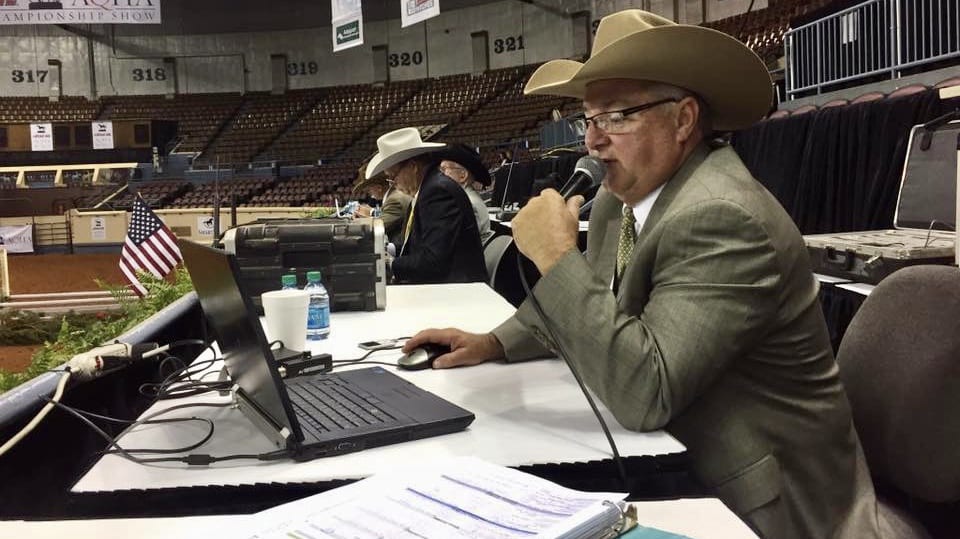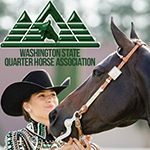It’s often been said that the announcer will “make or break” a show. Whether they’re announcing the newest world champion, an updated show schedule, or even just telling the show-goers that the judges are taking a short lunch break, announcers are one of the most important, valuable, and under-appreciated members of the horse show staff.
In this article, we’ll get to hear from some of the horse show world’s favorite announcers and what it’s like to have their job.
Announcers out of the box
Casey McBeath started showing in AQHA as a youth with the rest of his family, including his uncle, Tim McBeath, who is both a trainer and judge. To Casey, going to shows was “like going to meet the rest of the family.” He showed in halter, tie-down roping, breakaway roping, and was very involved in AQHA. He started working at a local radio station during college.
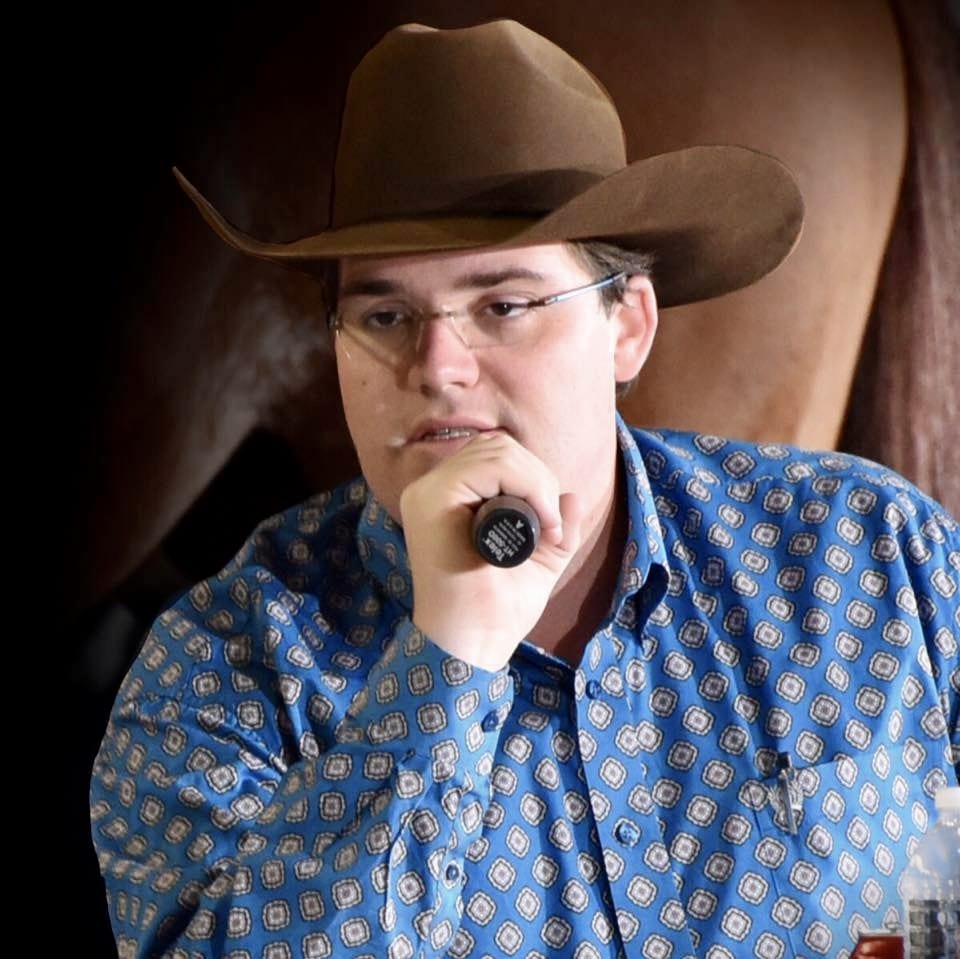 McBeath says, “When you go from showing so much and then to college, and you aren’t showing for a college, your opportunities almost stop. I volunteered at the MQHA youth show when they needed someone to announce. I had fun and started doing weekend shows around Louisiana and Mississippi.”
McBeath says, “When you go from showing so much and then to college, and you aren’t showing for a college, your opportunities almost stop. I volunteered at the MQHA youth show when they needed someone to announce. I had fun and started doing weekend shows around Louisiana and Mississippi.”
When Louis Amadee retired in 2013, Casey was asked to start announcing the Dixie Nationals with Clark Scoggin. McBeath also announces a few rodeos and speed events. He says, “When you’re announcing a horse show, there’s a different tone than you have at a rodeo, but there are times when that rodeo tone has helped at horse shows – freestyle reining, congress cutting, etc.”
For Casey, the most rewarding part of his job is “If I do my job correctly, I become part of somebody’s memory. That’s the coolest part of announcing the World Shows or The Congress. It’s a once in a lifetime opportunity for these people. I can still remember who was announcing when I won my World Championship.”
He states that one of the very few negatives of his job is having little downtime or breaks while working weekends or long shows.
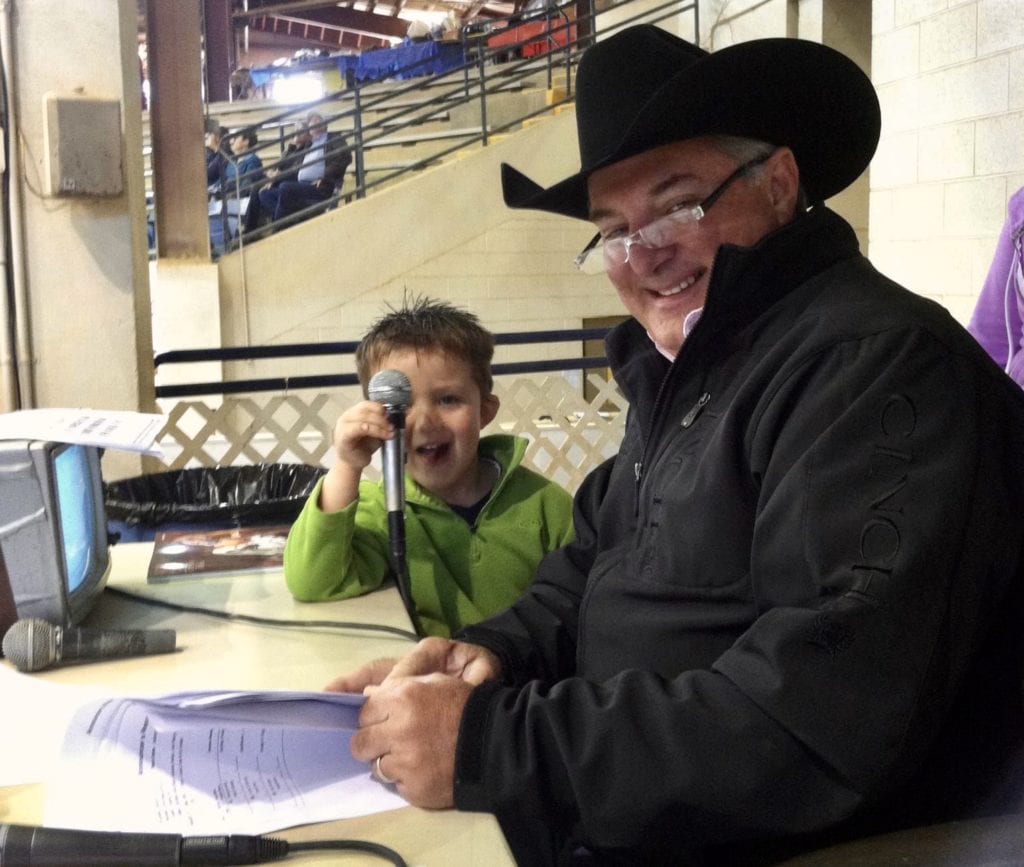 Mississippi native, Clark Scoggin started out showing a little as a kid. Once he married and had kids, the Scoggin family became very active with showing and other activities. Clark had gone to auctioneer’s school and was doing some small auctions.
Mississippi native, Clark Scoggin started out showing a little as a kid. Once he married and had kids, the Scoggin family became very active with showing and other activities. Clark had gone to auctioneer’s school and was doing some small auctions.
One day at a show, the show secretary, who happened to be one of Scoggin’s close friends, asked if he could finish up announcing the show since the current announcer had to leave. Clark decided to help. He finished that day and announced the next day too. He got a call a few days later from his secretary friend who asked if he could do all of her shows the following year. Scoggin mostly announced in Louisiana and Mississippi, where he met his mentor Louis Amadee. The two worked together for years and announced The Congress, Dixie Nationals, and World Shows.
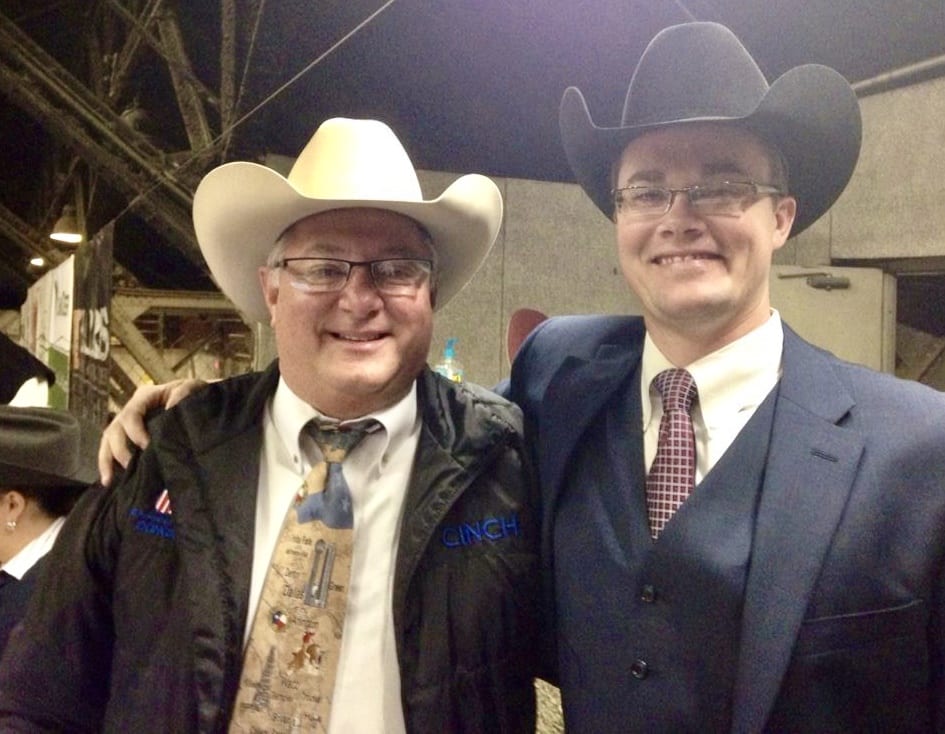 Not only is Clark an announcer at shows, but you may also see him in the judge’s chair. “I’m an AQHA judge, so I understand the things that the judges need to know and try to provide them with that information while I’m announcing,” says Scoggin.
Not only is Clark an announcer at shows, but you may also see him in the judge’s chair. “I’m an AQHA judge, so I understand the things that the judges need to know and try to provide them with that information while I’m announcing,” says Scoggin.
One of the more challenging things he goes through while announcing is multitasking. “At times, you will have three or four people talking to you on the radio at one time. You have to stay focused; you can’t relax. As soon as a crisis comes up, you are the one they call. You have to prioritize; you’re not just sitting there, reading words off a paper. You’re trying to make sure the people in the arena get all the information they need, plus you’re trying to work for the exhibitor and give them the best possible ride they can get when they’re showing.”
The voice behind the voices
Show manager Michelle Forness says when she’s hiring new announcers, she looks for, “Self- starters, someone who is friendly, that takes instructions well, is a team player and understands that the exhibitors are the customers and we are here for them.”
Forness says, “Announcers are the voice of the show; they set the tone. The announcers are the identity of the show, so you want them to be memorable. Announcers can make or break a show. They can slow your show down and drag it out, or a good announcer can make it where the exhibitors can have dinner at night. A good announcer that keeps the exhibitors informed can reduce their stress and make it a good experience.”
Michelle says it’s important to “know your customers and audience. Keep everyone informed, but don’t talk too much. Scripts help.”
Want to start announcing at shows?
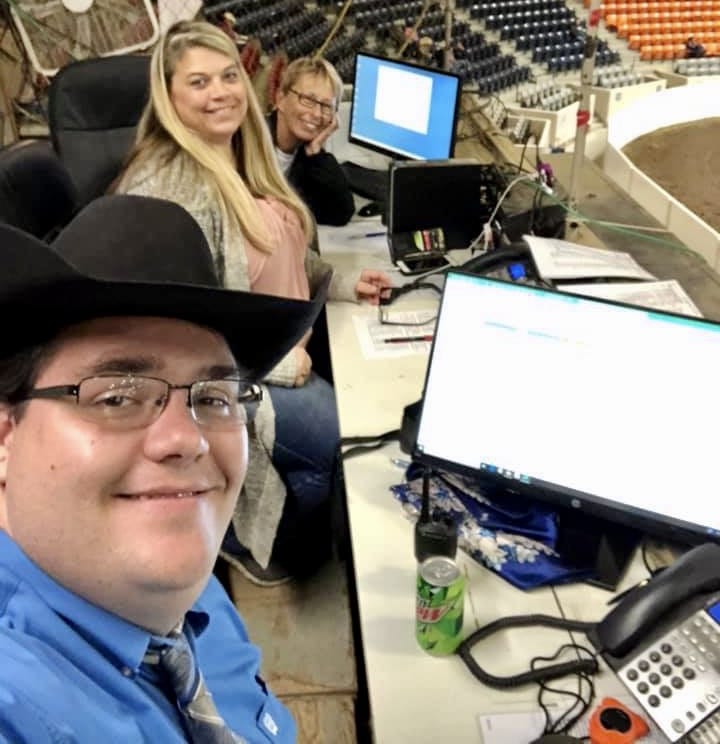 Casey’s advice to people who want to start announcing is, “You have to understand horse shows. Have shown or been around horse shows enough to understand the flow of a show.
Casey’s advice to people who want to start announcing is, “You have to understand horse shows. Have shown or been around horse shows enough to understand the flow of a show.
Another thing is, if you’re announcing, music has got to be a big deal. It’s an integral part of the show. Being in a building or an arena with no music for eight to ten hours, versus something in the background, can change the mood of a show.
If you’re planning on announcing, you need to invest in music and have it be downloadable that you can carry with you. You won’t have internet all the time, and you don’t want commercials. Small things like that make a big difference. I know a lot of the staff and judges that I work with. I like making sure I fit music for whatever is going on.
A trail class won’t have a classic thumping rock; western pleasure might get a little more country-western. At the Congress, we swap pens, so when I do more speed events, I can crank up the music, and we have more fun and get everyone in the building into the run.”
Scoggin says, “Anyone wanting to get involved in announcing – get a mentor and let that mentor help you. Announcing isn’t something that everyone can do. I’ve seen people who want to be announcers, but couldn’t do it. They couldn’t multitask or spit the words out fast enough. In most cases, you get what you pay for. A poor announcer can kill a show. Someone who keeps the show moving can help it do well.”
What about those tricky, hard to pronounce names?
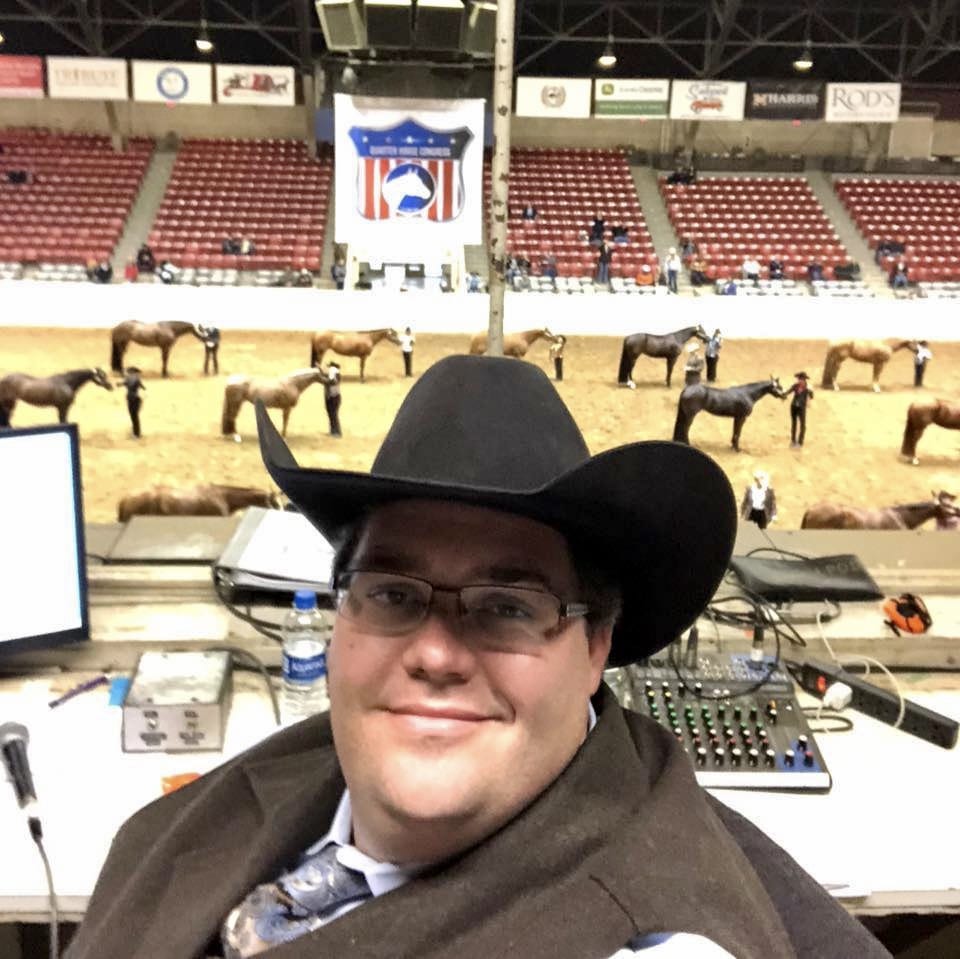 McBeath’s trick to managing those difficult and unusual names is, “A wing and a prayer, and we swing right through it,” he said jokingly. “You look at them as best you can, get a pronunciation if you can, and just take your best guess. If something is mispronounced, let the back gate know nicely, please don’t take it personally. We strive to call everybody’s information out correctly; if we find out we did wrong, we sure try to change it.”
McBeath’s trick to managing those difficult and unusual names is, “A wing and a prayer, and we swing right through it,” he said jokingly. “You look at them as best you can, get a pronunciation if you can, and just take your best guess. If something is mispronounced, let the back gate know nicely, please don’t take it personally. We strive to call everybody’s information out correctly; if we find out we did wrong, we sure try to change it.”
Clark says, to pronounce those unique names, “It’s a challenge. Sometimes you hit it fast and that way nobody notices. Different locations are pronounced differently in some parts of the country. Even people’s names can be spelled the same and pronounced differently in other parts of the country. You learn quickly to break down your syllables and pronounce the syllables. Now, some people’s names are difficult, and so are horse’s names when they don’t have spaces. Most of the time, you’re hitting that cold, and we will get it wrong occasionally. We do the best we can, and hopefully, we can get it right more than we get it wrong. Once you get past Smith and Jones, you never know what you’re going to get.”
There’s no doubt about it, shows just could not happen without the show staff. Whether it’s the announcers, judges, managers, coordinators, office people, or anyone else who helps the horse shows run smoothly, they all deserve many thanks because not everyone can do their jobs.
Many hours are spent working tirelessly to make your show experience the best it can be, whether it’s writing a schedule, working on entries, or creating a show time playlist for each class.


